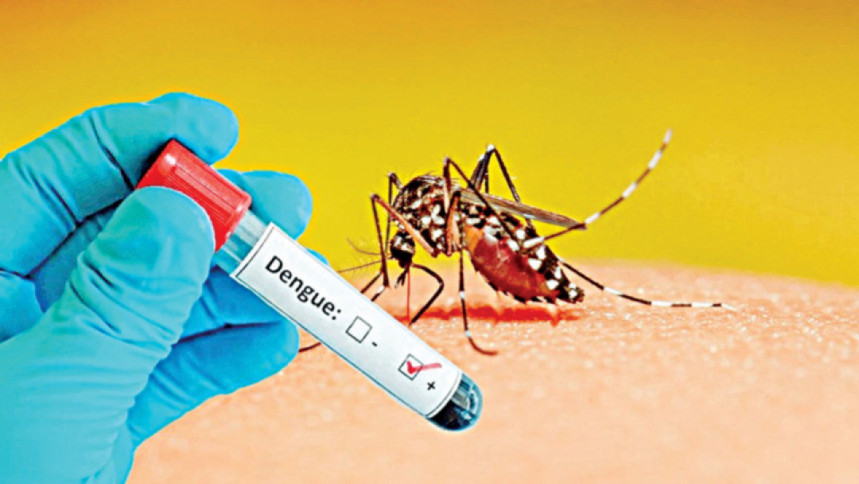Dengue cases cross 90,000 mark

With 837 new dengue cases reported yesterday, the total number of cases this year has surged past 90,000.
This is an alarming rise as the year enters November, a time when cases typically start to decline.
The Directorate General of Health Services reports 482 deaths, with the total number of dengue cases reaching 90,440 as of yesterday.
Experts are attributing the prolonged dengue season to ineffective mosquito control measures, favourable weather conditions for mosquito breeding, and the failure to implement preventive actions during the lean period earlier in the year.
Entomologist Manzur A Chowdhury pointed out that the unusual combination of high humidity and warm temperatures in November has created ideal breeding conditions for Aedes mosquitoes. "This level of dengue transmission in November is uncommon, as cases usually decrease at this time. Warmer temperatures have allowed mosquito populations to thrive," he said.
Manzur stressed that early intervention could have limited the spread. "If authorities had acted during the lean period from January to March, the outbreak could have been controlled," he said.

He also highlighted the need for more comprehensive measures beyond mosquito control. "Authorities focus on killing mosquitoes, but we also need to prevent the virus from spreading through human movement," Manzur said.
Manzur cited Kolkata's approach in India, where all fever cases are tested for dengue, Zika, and malaria from the start of the year. "This proactive method is absent in Bangladesh," he said.
He also called for better tracking of all dengue cases, including asymptomatic ones.
"Currently, the DGHS only records hospitalised patients, which is a small fraction of the total cases. A nationwide system to monitor all dengue cases is crucial," he added.
He also suggested declaring dengue a reportable disease from January to June, which would help better track cases and eliminate mosquito breeding sites.
Entomologist GM Saifur Rahman from the National University of Bangladesh agreed that the lack of effective control measures has contributed to the outbreak.
"This year, we have not seen weather conditions that reduce mosquito populations, and Aedes mosquitoes are still breeding in large numbers," he said.
He pointed out that rural areas, where people lack awareness of mosquito breeding, are particularly vulnerable.
Both experts stressed the need for identifying asymptomatic dengue patients, who make up 70-80 percent of cases and act as reservoirs for the virus. "Without tracking these patients, controlling the spread of Aedes mosquitoes is nearly impossible," Saifur warned.
Both Manzur and Saifur emphasised that colder weather is crucial for slowing the virus's spread by reducing mosquito breeding.
"The presence of the dengue virus across the country and ineffective control measures have allowed the outbreak to continue," Saifur concluded.
The experts are urging for coordinated action from the government, including improved surveillance, early intervention, and increased public awareness, to control the spread of the virus in the coming months.


 For all latest news, follow The Daily Star's Google News channel.
For all latest news, follow The Daily Star's Google News channel. 



Comments